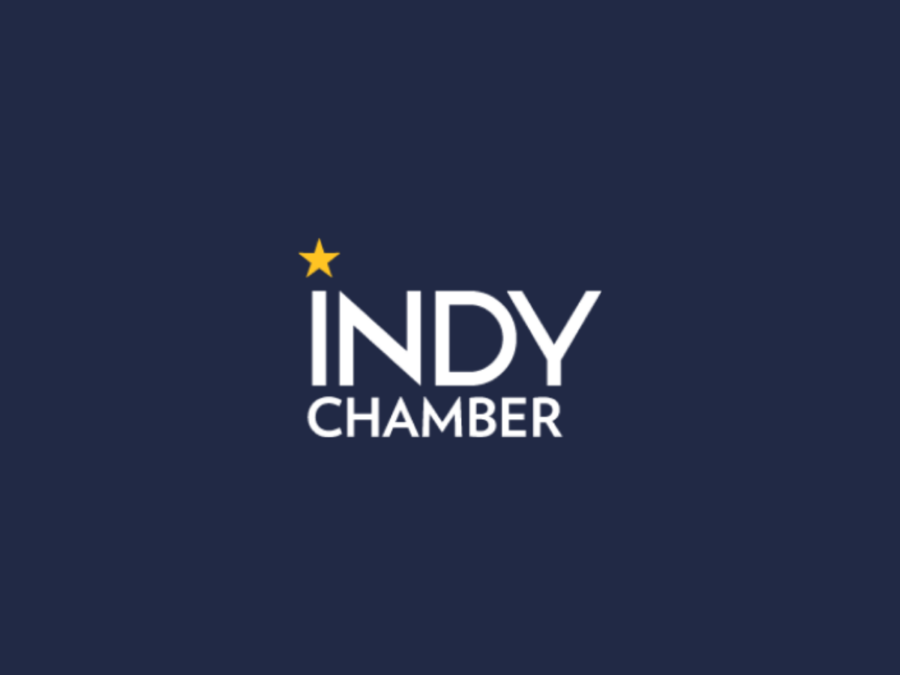Happy New Year and welcome to a new session of the Indiana General Assembly; after a couple of special hearings on HB1001 in November and December, lawmakers reconvened for regular business on Tuesday.
Maybe it’s because the last two years were so draining, but fewer Americans report making New Year’s resolutions for 2022 (who can blame them?). But the topic of resolutions–and resolve–was still on our minds as Governor Holcomb unveiled his legislative agenda Monday.
As anyone who’s abandoned a gym membership or a diet in early February can attest, resolutions are easy to make but tough to sustain. You have to stick with them, even when it’s inconvenient or uncomfortable.
We backed Governor Holcomb in the 2020 campaign in part because he makes long-term commitments and works hard to keep them. On Monday, he stuck with his pro-business principles against pressures to limit employers’ authority to require COVID vaccines in their workplaces. He refused to make hasty comments about classroom diversity programs or politicizing school board elections, and emphasized current budget priorities instead of splashy new initiatives.
This may be a short session of the legislature, but the choices made this year will linger long into the future–for businesses rebuilding from the pandemic, for educators trying to create classrooms where every student feels empowered to learn, and for local officials working together to attract new residents, employers and investment to their communities and regions.
Our resolution is to push progress on all these fronts, and keep you in the loop every week. So here we go.
Conference Rivalry:
Indianapolis gets another turn in the national spotlight next week as Georgia and Alabama fans come to town for an all-SEC college football championship game. We’re seeing another kind of conference rivalry emerge at the Statehouse, as House and Senate Republicans look at different approaches on several key issues.
We’ve talked about HB1001, the House proposal eroding the ability of employers to protect workers, customers and business continuity by requiring COVID vaccinations. The bill—with a few amendments—passed through the Employment, Labor & Pension Committee this week, in a step backwards for businesses (more on this at the end of this update).
A different plan to address the COVID crisis has emerged in the Senate, where SB3 makes changes requested by the Governor (allowing the state to receive enhanced Medicaid and federal nutrition program funding and administer vaccinations to young Hoosiers), while removing the anti-vaccine provisions that put more lives and livelihoods at risk. We hope this bill gains traction as a common-sense approach to ending the public health emergency responsibly.
The Chamber has taken a stand against injecting partisanship into school board elections; in another case of intercameral rivalry, different plans for adding political labels to the school board ballot have also been advanced on either side of the rotunda:
- HB1042 mandates that the recent primary voting history of school board candidates be listed (along with adjustments to board salaries, per diem rates and other administrative issues).
- SB144 creates the option for candidates to include their partisan affiliation, while addressing issues of appointed board members and school employees running for office (for collective bargaining purposes).
We continue to believe that school boards should be focused on education policy and what’s best for students, not distracted by party platforms or political expediency. But we acknowledge the nod to local flexibility and emphasizing options over requirements.
Perhaps the biggest difference between the House and Senate supermajorities is on taxes. The Senate’s fiscal leaders have taken a more cautious stance than the House, where there’s stronger sentiment for permanent tax cuts capitalizing on the strong state revenue forecast released last month. Ways & Means chair ‘Doc’ Brown introduced HB1002, which:
- Cuts the state’s individual income tax from 3.23% to 3% over three years;
- Exempts new equipment from a minimum depreciation level (the so-called “30% floor”) built into the state’s business personal property tax–a proposal of Governor Holcomb’s (who has otherwise refrained from backing new tax relief);
- Allows businesses to apply state tax credits to offset other business personal property tax liabilities to avoid short-term revenue losses to local governments; and
- Repeals utility receipts and services taxes.
We haven’t taken a position on the plan, but we appreciate that it attempts to protect local budgets (as cities like Indianapolis face tight limits on their revenue capacity) by avoiding short-term revenue losses and shifts in the property tax burden while promoting investment in manufacturing equipment to strengthen Indiana’s pro-business tax climate. We’ll keep an eye on the bill and its reception from the Senate and the Governor’s office.
School Choices:
We touched on the importance of keeping school board races non-partisan to keep the focus on student learning and achievement.
The consequences of injecting political controversies into the classroom were on display as the Senate Education Committee heard SB167 on Wednesday. The bill would restrict how educators can address issues like race and systemic inequities, put time-consuming new mandates on teachers and administrators, and give parents the ability to opt students out of certain lessons.
We testified on the bill, stressing the importance of preparing young Hoosiers to thrive in a global economy with a rigorous academic curriculum and the ability to embrace diverse perspectives and work alongside people from all walks of life.
The bill provoked hours of sometimes-contentious testimony (concisely summarized by Chalkbeat), and the House plans to hear a companion measure–HB1134–on Monday.
There were also more constructive actions on education this week:
- We also spoke in support of HB1093, heard in House Education Wednesday–Governor Holcomb and Chairman Behning are championing progress on early childhood education by empowering the Early Learning Advisory Committee.
- HB1093 also adjusts the formula for allocating state school aid to avoid penalizing schools missing instructional days through the pandemic; SB2 similarly expanded the K-12 enrollment “count day” so schools don’t lose funding while struggling with COVID outbreaks or shifting to e-learning (it passed committee on Wednesday).
- We’re pleased that the legislature will again consider a requirement for graduating high school students to complete the FAFSA, so every family gets a realistic view of the financial resources available for post-secondary education (SB82).
Closing on COVID:
On Wednesday, Indiana shattered its all-time daily COVID numbers, recording nearly 13,000 new cases. On Thursday, the House took another step forward on a bill that would make it harder to protect businesses and employees from the virus.
We mentioned committee action on HB1001 earlier, but want to note a few changes to the bill before it hits the floor:
- A deadline for accepting enhanced federal SNAP funding was removed, an improvement for flexibility in helping Hoosiers in need through the crisis.
- The bill does require documentation for employees claiming medical exemptions to the COVID vaccine but reiterates that only a “statement of belief” is needed for religious exemptions–this is the loophole rendering any vaccine requirement essentially void.
- Testing expenses for unvaccinated employees may be reimbursed by federal COVID aid, relieving some of the financial burden on businesses.
- However, employees terminated due to a vaccine requirement may seek unemployment benefits, adding more costs to the private sector–and penalizing employers willing to make tough decisions to protect their workplaces–through the unemployment insurance system.
Amendments to the bill don’t alter our essential concerns (and add another negative wrinkle with the unemployment benefit language). However, we’re heartened by the continued dialogue and willingness to make changes (and the existence of a pro-business alternative in the Senate to spur further negotiation).
The bottom line is that employers are facing the toughest business environment in living memory, grappling with rising inflation, talent shortages, supply chain disruptions, and the Omicron surge. What they need from the legislature is support to keep workers safe and their doors open, not more red-tape or new costs. We’ll continue to track this one; for now, that’s a wrap on the first week of this short (fingers crossed) session.



